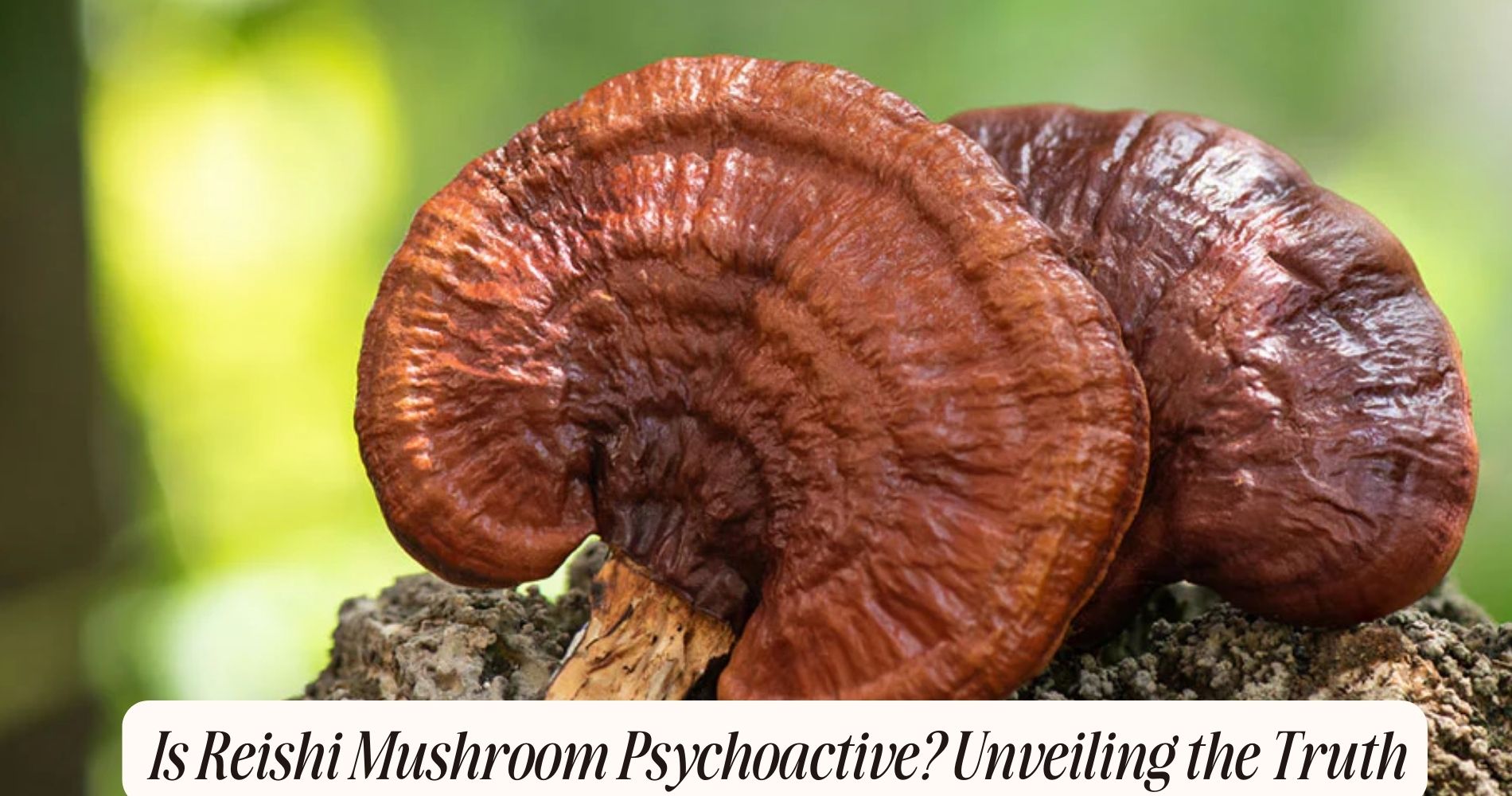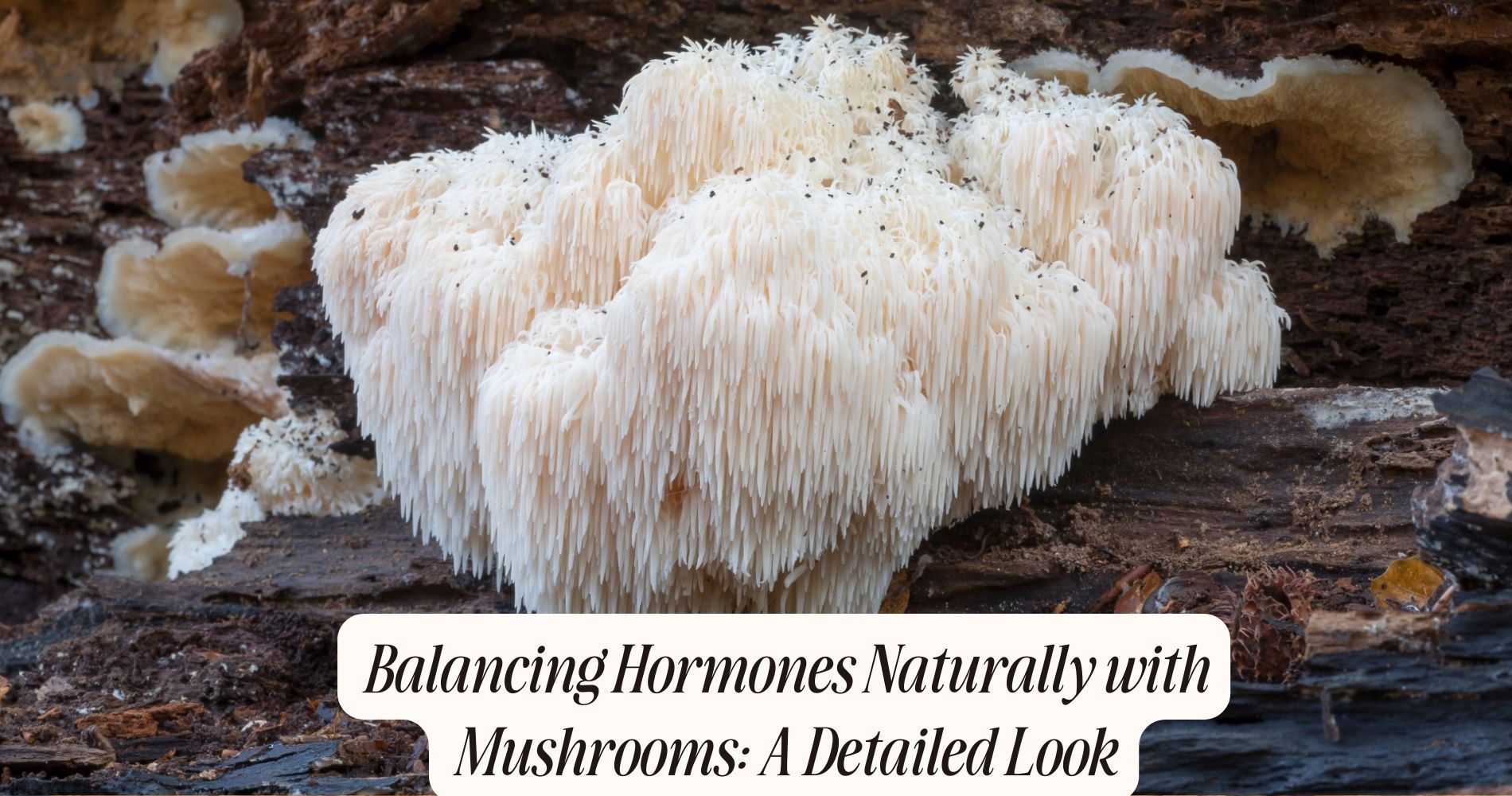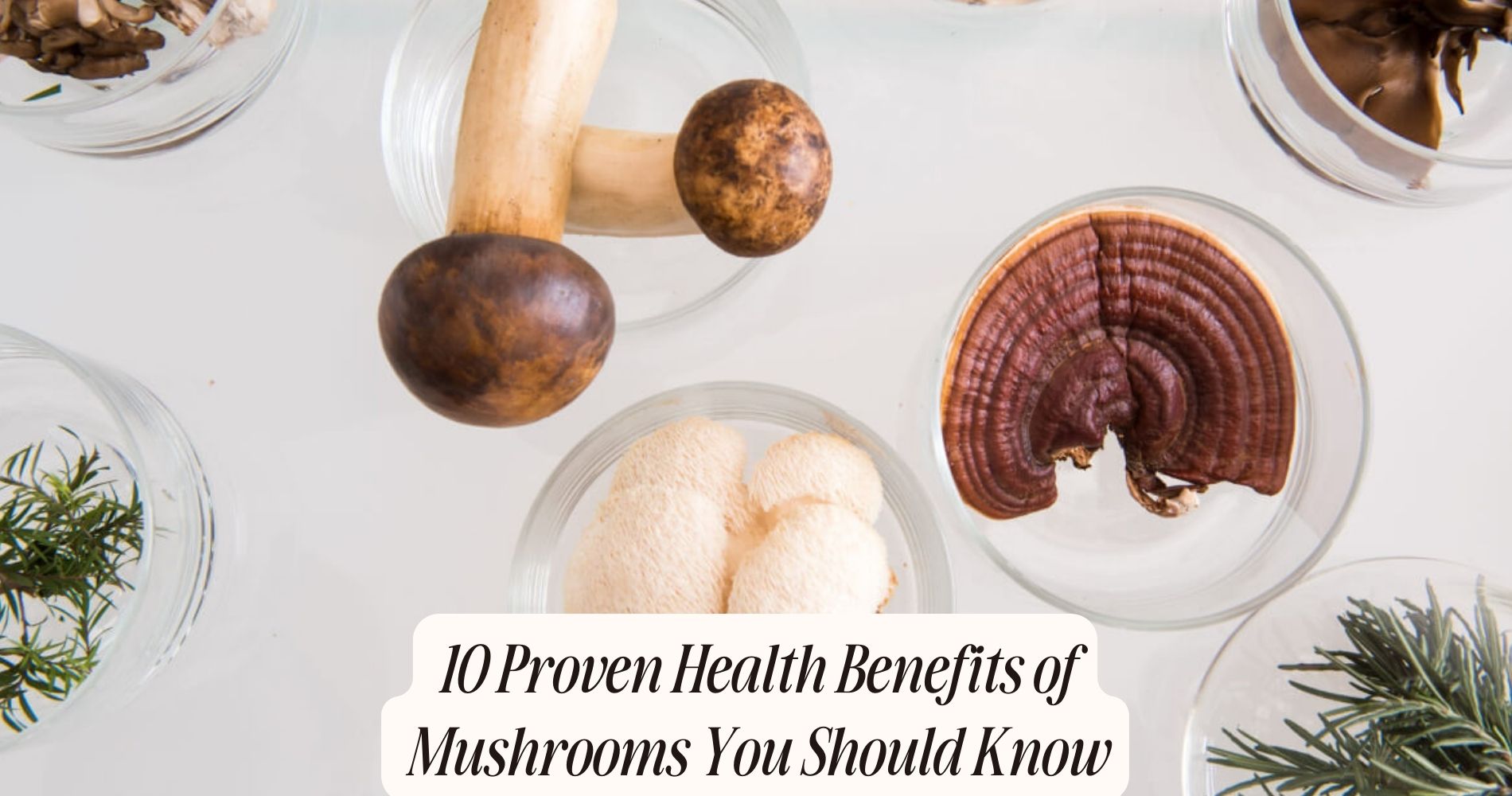
Is Reishi Mushroom Psychoactive? Unveiling the Truth
Historical Uses of Reishi
Historically, how have cultures around the world utilized Reishi mushrooms for their medicinal properties?
Reishi mushrooms, known scientifically as Ganoderma lucidum, have long been hailed as ancient remedies in various cultures. In traditional Chinese medicine (TCM), they're referred to as Lingzhi and are believed to enhance longevity and vitality. Ancient Chinese texts document their use dating back over 2,000 years, where they were revered as the 'mushroom of immortality.'

In Japan, Reishi is called Mannentake, meaning '10,000-year mushroom,' highlighting its supposed life-extending benefits. Japanese medicinal folklore often attributes it with enhancing mental clarity and calming the spirit.
In Korea, Reishi mushrooms are integral to traditional herbal medicine, often used to treat various ailments, including hepatitis and hypertension.
Indigenous tribes in the Amazon have also utilized Reishi mushrooms, believing in their power to bolster the immune system.
Likewise, in European history, Reishi mushrooms were less common but still recognized for their potential health benefits, often cited in medieval medicinal folklore as a treatment for various maladies.
Chemical Composition
Reishi mushrooms are composed of a complex array of bioactive compounds, including polysaccharides, triterpenoids, peptidoglycans, and sterols, each contributing to their potent medicinal properties.
You'll find that polysaccharides, particularly beta-glucans, form a substantial part of Reishi's chemical makeup. These polysaccharides are renowned for their immune-modulating effects, which can enhance your body's defense mechanisms by promoting the activity of macrophages and natural killer cells. This is a key aspect of the polysaccharide benefits that Reishi offers.
Triterpenoids, another significant component, exhibit a diverse range of bioactivities. The triterpenoid profiles in Reishi are complex, with over 150 types identified, including ganoderic and lucidenic acids. These compounds possess anti-inflammatory, anti-tumor, and hepatoprotective properties.
Their anti-inflammatory effects, for instance, can help reduce chronic inflammation, which is linked to various diseases. Peptidoglycans and sterols further augment Reishi's pharmacological effects, contributing to its reputation as a health-promoting fungus.
Traditional Beliefs
In traditional Chinese medicine, the revered 'mushroom of immortality' has long been believed to promote longevity and overall well-being. Known scientifically as Ganoderma lucidum, or Reishi, this fungus holds deep cultural significance. Ancient texts and folklore stories frequently extol its benefits, claiming it can enhance vitality and improve life span.
You'll find that Reishi's cultural significance isn't limited to China; it's also prominent in Japanese and Korean traditions. In Japan, Reishi is called 'Mannentake,' translating to '10,000-year mushroom,' further emphasizing its association with longevity. Korean folklore stories often describe it as a gift from the gods, meant to grant health and ward off evil spirits.

The taxonomy of Ganoderma lucidum reveals its unique features that have captivated traditional healers for centuries. Its fruiting bodies are rich in polysaccharides, triterpenoids, and other bioactive compounds, which practitioners believe contribute to its therapeutic effects. Reishi's use in traditional medicine encompasses a holistic approach, aiming to balance the body's energies and strengthen its natural defenses.
However, while these traditional beliefs are compelling, they're based on centuries-old observations and narratives rather than empirical evidence, a topic we'll explore further later.
Modern Scientific Research
While traditional beliefs have long celebrated Reishi's health benefits, modern scientific research aims to rigorously test these claims through empirical studies and advanced analytical techniques. You'll find that modern studies focus on understanding the biochemical constituents of Reishi (Ganoderma lucidum), such as triterpenoids, polysaccharides, and peptides, all of which contribute to its reputed benefits. Researchers employ chromatography and mass spectrometry to isolate and identify these compounds, providing a detailed chemical profile that traditional methods can't offer.
Clinical trials further evaluate Reishi's effects on human health. These trials often examine its immunomodulatory, anti-inflammatory, and potential anti-cancer properties. For instance, some studies have shown that Reishi extracts can enhance the activity of natural killer cells, which play a role in immune defense. Other research explores its impact on reducing fatigue and improving quality of life in cancer patients. However, the scope, sample size, and methodological rigor of these trials vary, necessitating cautious interpretation of results.
To summarize, modern scientific research provides a more nuanced and evidence-based understanding of Reishi's potential benefits. It's important to keep in mind that while promising, the outcomes of these modern studies require further validation through extensive clinical trials.
Psychoactive Definition
A psychoactive substance, by definition, alters mental state, mood, or perception through its effects on the central nervous system. When you think of psychoactive drugs, you might immediately conjure images of substances like caffeine, nicotine, or more potent compounds such as LSD and psilocybin. These substances interact with neurotransmitter systems in your brain, producing changes in perception, mood, consciousness, and behavior.
Psychoactive plants have a long history of use in various cultures for medicinal, recreational, and spiritual purposes. For example, Cannabis sativa contains tetrahydrocannabinol (THC), which is well-known for its psychoactive properties. Similarly, the peyote cactus contains mescaline, another potent psychoactive compound. These plants and their derivatives exert their effects by binding to specific receptors in the brain, altering normal cognitive functions.

Understanding what makes a substance psychoactive is important for distinguishing between different types of natural and synthetic compounds. Not all plants or fungi with health benefits are psychoactive. When evaluating whether the reishi mushroom (Ganoderma lucidum) falls into this category, it's vital to analyze its active compounds and their specific interactions with the central nervous system. This forms the basis for determining whether reishi can be classified among psychoactive drugs or plants.
Reishi's Active Compounds
When exploring reishi mushroom's bioactivity, it's important to investigate its primary compounds such as triterpenoids, polysaccharides, and peptidoglycans.
Triterpenoids are perhaps the most extensively studied bioactive constituents of Ganoderma lucidum, the scientific name for reishi. These compounds exhibit a range of medicinal properties, including anti-inflammatory, anti-tumor, and liver-protective effects. You'll find that triterpenoids contribute greatly to reishi's reputation in traditional medicine.
Polysaccharides, another key component, are renowned for their immunomodulatory effects. These complex carbohydrates enhance your immune system's response, making them valuable in fighting infections and potentially inhibiting cancer cell growth. Polysaccharides also exhibit antioxidant properties, which help in neutralizing harmful free radicals in your body.
Peptidoglycans, though less publicized, also play a role in reishi's medicinal profile. These molecules help in modulating immune responses and exhibit anti-inflammatory properties. They work in synergy with triterpenoids and polysaccharides to enhance the overall efficacy of reishi extracts.
Understanding these bioactive constituents provides insight into why reishi mushrooms have been valued for centuries in traditional medicine. By focusing on these compounds, you can appreciate the extensive medicinal properties that make reishi a subject of ongoing scientific interest.
Reishi and the Brain
In examining reishi's impact on the brain, you'll find that its bioactive compounds, particularly triterpenoids and polysaccharides, exhibit neuroprotective and cognitive-enhancing properties. These compounds play an important role in maintaining brain health by reducing oxidative stress and inflammation, two key factors in neurodegenerative diseases. Triterpenoids, in particular, have been shown to inhibit the production of harmful free radicals, thereby protecting neuronal cells from damage.
Moreover, polysaccharides in reishi are known to enhance cognitive functions. They stimulate neurogenesis, the process of forming new neurons, which is essential for learning and memory. These polysaccharides also modulate the immune response, ensuring that inflammation in the brain remains regulated, further supporting cognitive enhancement.
Reishi's influence on brain health extends to its ability to improve blood flow and oxygen supply to the brain. This ensures that neurons receive adequate nutrients and energy, optimizing their function.
Additionally, reishi has been found to boost the production of nerve growth factors, which are essential for the growth, maintenance, and survival of neurons.
Reported Effects
Several users report that reishi mushroom consumption leads to a noticeable reduction in stress and anxiety, suggesting its potential role in supporting mental well-being. User testimonials frequently highlight an improvement in overall mood and a sense of calm. These anecdotal experiences indicate that reishi (Ganoderma lucidum) may have adaptogenic properties, helping the body resist various stressors.
In addition to mental benefits, some users note enhancements in physical health, such as improved sleep quality and reduced fatigue. The polysaccharides and triterpenes present in reishi are often credited for these effects. These compounds might modulate the immune system, offering a holistic benefit that extends beyond mere mental health.
Interestingly, user testimonials also mention a boost in cognitive function, including enhanced clarity and focus. While these effects are promising, they're primarily anecdotal and require further scientific validation.
On the other hand, some users report minimal to no changes, indicating variability in individual responses. This variability could be attributed to differences in dosage, duration of use, or even the quality of the reishi mushroom product. Overall, the reported effects emphasize reishi's potential but also highlight the need for more rigorous scientific studies.
Comparing With Psychoactive Mushrooms
While reishi mushrooms exhibit adaptogenic properties and various health benefits, it's important to distinguish them from psychoactive mushrooms, such as those containing psilocybin, which directly affect perception and cognition. Unlike reishi (Ganoderma lucidum), psilocybin mushrooms fall under the genus Psilocybe and are known for their hallucinogenic distinction.
These psychoactive fungi contain compounds like psilocybin and psilocin, which interact with serotonin receptors in the brain, leading to altered states of consciousness, visual and auditory hallucinations, and changes in thought processes.
In a psychoactive comparison, reishi mushrooms don't produce these mind-altering effects. Instead, they're renowned for their role in supporting the immune system, reducing stress, and improving sleep quality without any psychoactive properties. The active compounds in reishi, such as triterpenoids and polysaccharides, work differently from the psychoactive substances found in Psilocybe species.

Understanding this hallucinogenic distinction is essential for anyone interested in mushroom supplementation. While reishi can contribute to overall well-being through its adaptogenic effects, it won't induce the psychoactive experiences associated with psilocybin mushrooms.
This clear separation in their biochemical and physiological impacts highlights the importance of accurate identification and usage based on your health goals.
Safety and Usage
When considering Reishi mushrooms, you'll need to focus on proper dosage guidelines to avoid potential side effects. Understanding safe consumption practices is crucial to guarantee you benefit from its therapeutic properties without adverse reactions.
It's important to consult reliable sources and possibly healthcare professionals to navigate these aspects effectively.
Proper Dosage Guidelines
To guarantee the safe and effective use of Reishi mushrooms, it's vital to follow established dosage guidelines based on scientific research and clinical studies. The primary dosage forms include capsules, powders, and tinctures. Each form has specific dosage recommendations. For capsules, a common dosage ranges from 1.5 to 9 grams per day. When using powders, it's typically advised to consume between 1 to 3 grams daily. Tinctures, often more concentrated, usually require a dosage of 1 to 2 milliliters per day.
Dosage timing also plays an important role in maximizing the benefits of Reishi mushrooms. For general health maintenance, you might take your dose once daily, preferably in the morning to harmonize with your body's natural rhythms. If you're using Reishi to support sleep, consider taking it in the evening.
It's crucial to start with the lowest effective dose and gradually increase, monitoring for any adverse reactions. Consulting a healthcare provider before starting any new supplement regimen is always a wise choice. This tailored approach ensures you harness the full potential of Reishi mushrooms safely and effectively, aligning with both scientific research and individual health needs.
Potential Side Effects
Understanding the proper dosage is just one aspect; now, let's explore the potential side effects and safety concerns associated with Reishi mushroom usage.
While Reishi mushrooms (Ganoderma lucidum) have been praised for their health benefits, it's essential to be aware of possible adverse reactions. Allergic reactions are one notable concern. If you're prone to allergies, particularly to fungi, consuming Reishi mushrooms might trigger symptoms like skin rashes, itchiness, or even respiratory issues. Always start with a small dose to monitor your body's response.
Digestive issues are another common side effect. Some users report stomach upset, diarrhea, or bloating after consuming Reishi mushrooms. These symptoms could arise from the triterpenoids and polysaccharides present in the mushroom, which might irritate the gastrointestinal tract in sensitive individuals.
Moreover, Reishi mushrooms can interact with certain medications, especially anticoagulants and antihypertensives, leading to increased bleeding risk or altered blood pressure. Hence, if you're on medication, consult a healthcare professional before adding Reishi to your regimen.
Safe Consumption Practices
Guaranteeing the safe consumption of Reishi mushrooms involves adhering to recommended dosages, sourcing high-quality products, and being mindful of individual health conditions.
First, consider the preparation methods. Reishi mushrooms (Ganoderma lucidum) can be consumed in various forms, such as dried powders, tinctures, or teas. Each method requires specific dosages to maximize benefits while minimizing risks. For instance, dried powders usually suggest a daily intake of 1.5 to 9 grams, whereas tinctures might recommend a few drops per day.
Next, pay attention to the consumption frequency. Regular, moderate use is generally safe for most people, but taking breaks can help prevent any potential buildup of active compounds. Consuming Reishi mushrooms daily for several months, followed by a short hiatus, often ensures optimal efficacy and safety.
Lastly, always source your Reishi mushrooms from reputable suppliers. Check for third-party testing to verify purity and potency, as contaminants or adulterants can pose health risks. If you have underlying health conditions or take medications, consult a healthcare professional before adding Reishi to your regimen.
Discover the Convenience of Well Gummies: 10-IN-1 MUSHROOM GUMMIES
As you explore the key benefits of Reishi mushrooms, consider enhancing your wellness routine with Well Gummies' 10-IN-1 MUSHROOM GUMMIES. This convenient gum chew product is packed with 10 types of mushrooms, including the powerful Reishi. Well Gummies fuel your brain and energize your body naturally, providing calmer energy, sharper focus, and immune support for a balanced body and clear mind. Enjoy the fresh wild berry taste, as delicious as your favorite candy, without any jitters or crashes. Shine all day with the easy and convenient goodness of Well Gummies.
Frequently Asked Questions
Can Reishi Mushrooms Be Used in Culinary Dishes?
Yes, you can use reishi mushrooms in culinary dishes. Their culinary benefits include a unique flavor profile that's slightly bitter and earthy. However, they're often used in teas or broths rather than as a main ingredient.
How Should Reishi Mushrooms Be Stored for Maximum Shelf Life?
To maximize shelf life, store reishi mushrooms in a cool, dry place. Aim for a storage temperature between 50-60°F and maintain moisture control by using airtight containers. This prevents mold and preserves their beneficial compounds.
Are There Any Known Interactions Between Reishi Mushrooms and Prescription Medications?
Yes, reishi mushrooms can interact with prescription medications. They affect drug metabolism and may enhance anticoagulant effects, potentially leading to increased bleeding risks. Always consult your healthcare provider before combining them with any medications.
Can Reishi Mushrooms Cause Allergies or Adverse Reactions?
You might experience allergy symptoms or adverse reactions from reishi mushrooms. Common issues include skin rashes, itching, and digestive distress. Always consult your doctor before use, especially if you have known allergies or sensitivities.
What Are the Most Common Forms of Reishi Mushroom Supplements?
The most common forms of reishi mushroom supplements include capsules, powders, and tinctures. You'll find tincture benefits in ease of use, while extracts offer high potency, ensuring you get concentrated doses of bioactive compounds.
Conclusion
To sum up, you won't find reishi mushrooms falling under the psychoactive category. While they've a rich history and unique chemical composition, modern scientific research shows they don't interact with the brain in the same way as psychoactive mushrooms like psilocybin.
Instead, their benefits lie in immune support and overall wellness. So, if you're looking for psychoactive effects, reishi isn't the mushroom for you, but it's still highly valued for its health benefits.




